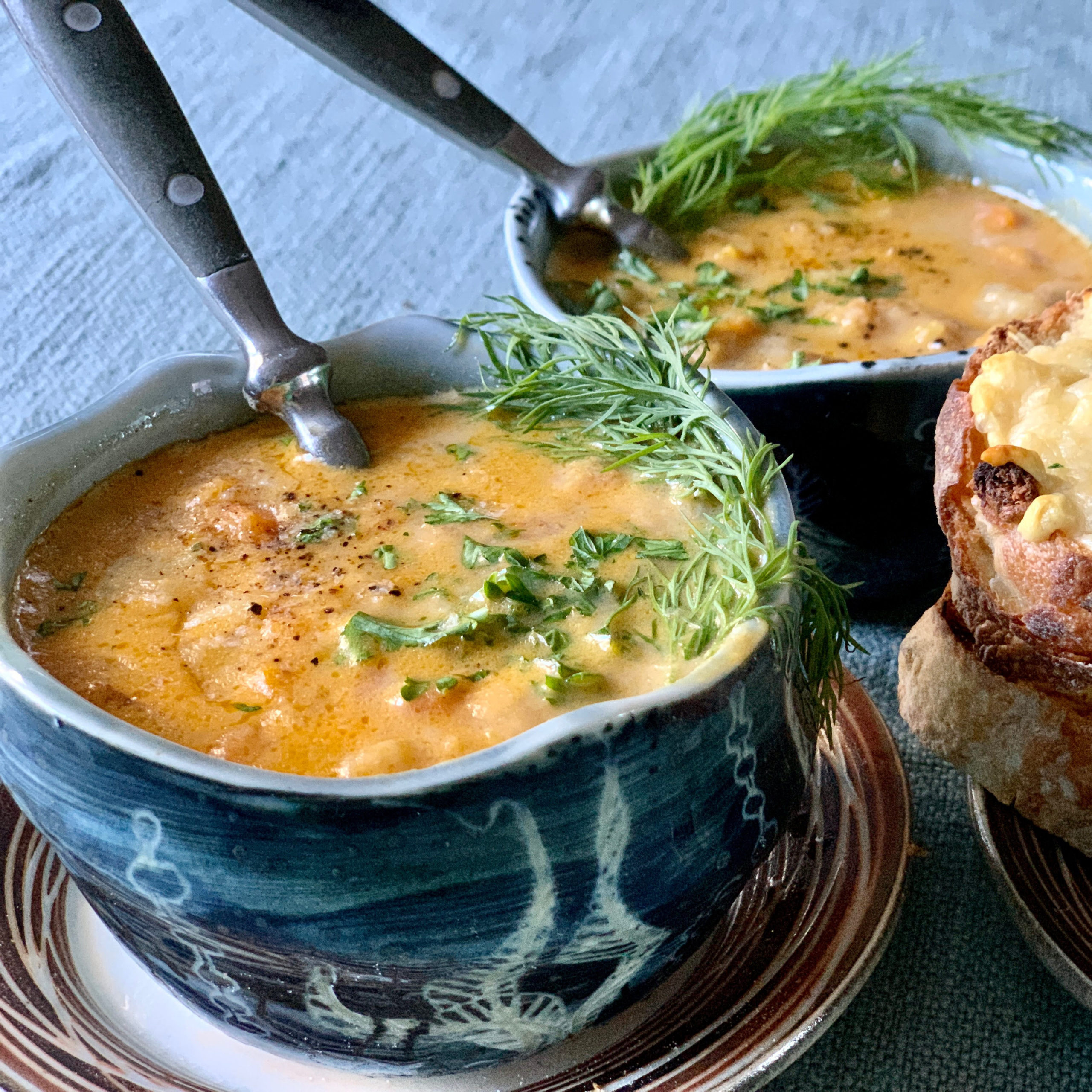Today’s Maine Sunday Telegram includes articles about scallop aquaculture and hop water products by produced by Maine breweries, an overview of Maine-made veggie burger options, and a 3½ star review of Bandaloop in Arundel.
In Arundel, executive chef/owner W. Scott Lee and co-owner Bridget Lee have continued their 20-year tradition of offering wide-ranging food and beverage options: from vegan and vegetarian options at every course to quirky cooking that embraces dishes like a fanciful Samoan-inspired coconut-and-ginger “palusami” stew, or German-style pork-and-red-cabbage.
